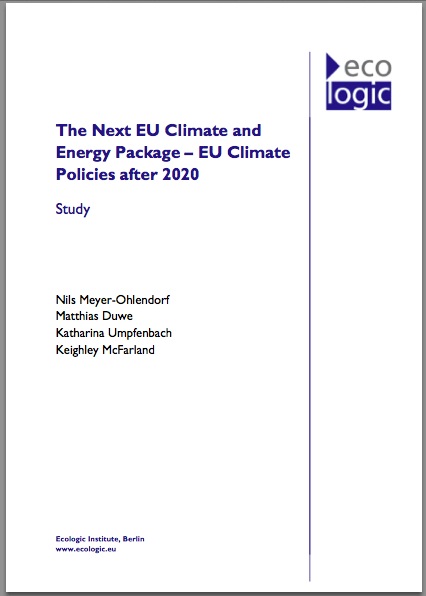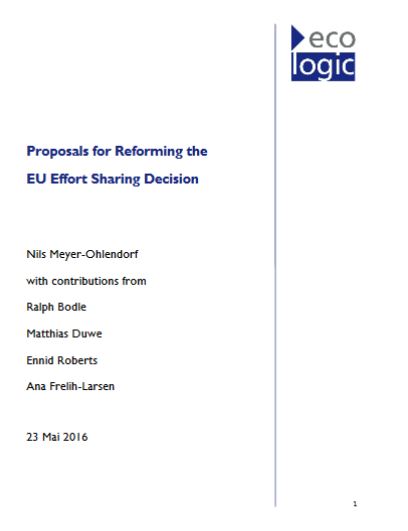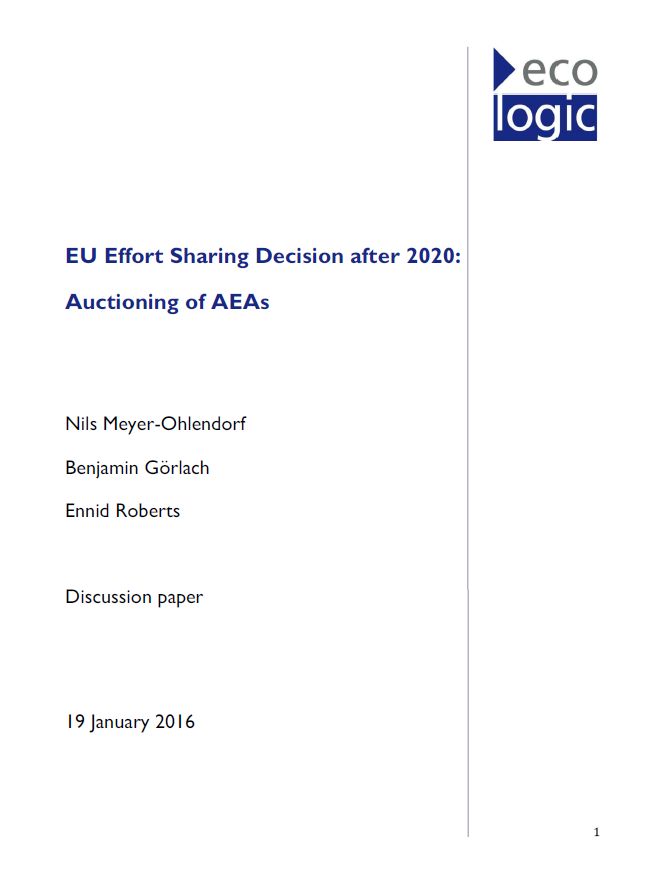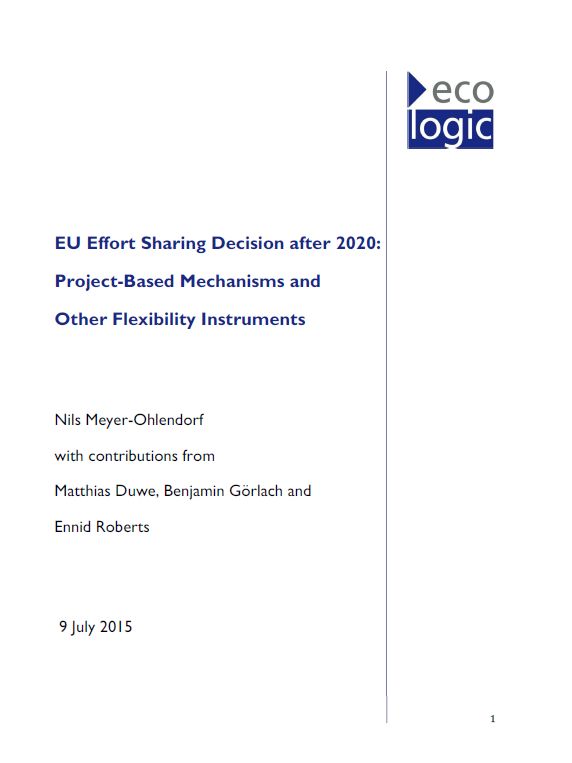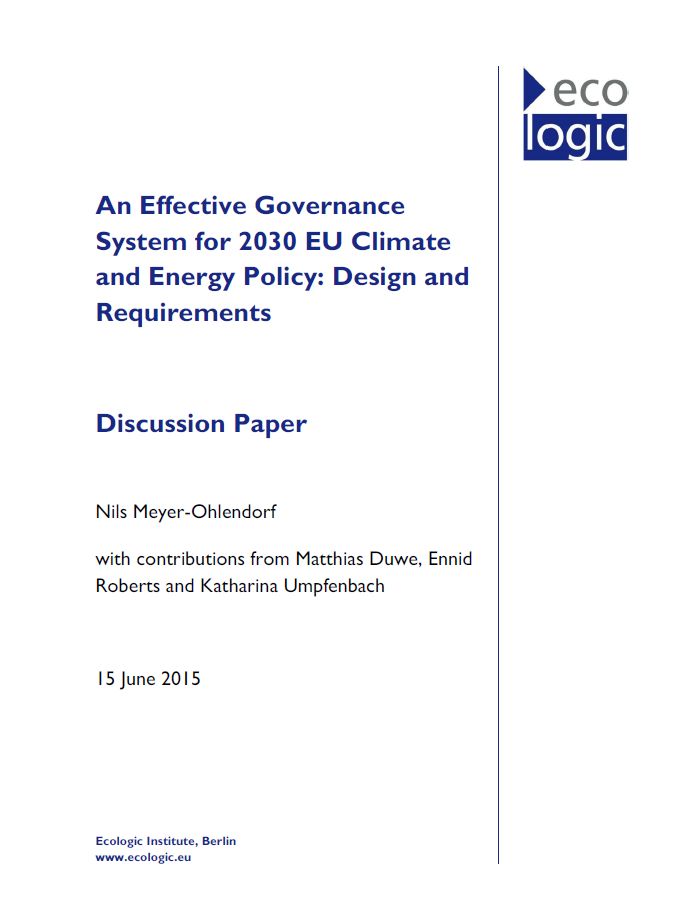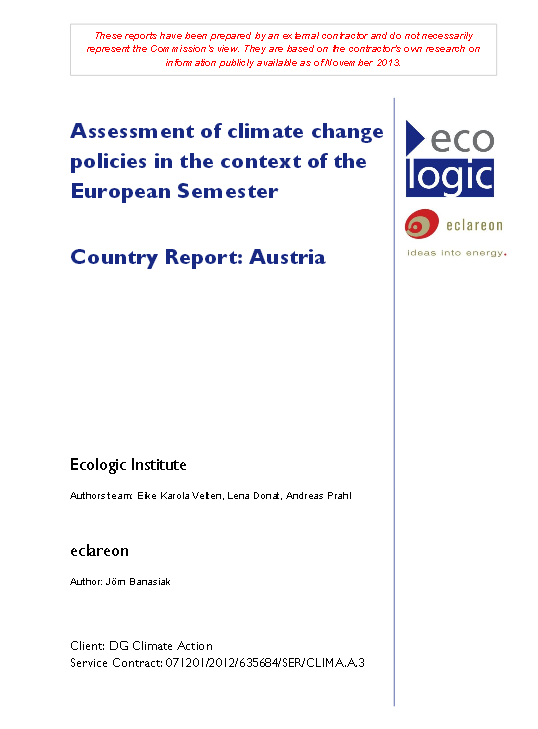The Next EU Climate and Energy Package – EU Climate Policies after 2020
- Publication
- Citation
Meyer-Ohlendorf, Nils; Matthias Duwe; Katharina Umpfenbach and Keighley McFarland 2014: The Next EU Climate and Energy Package – EU Climate Policies after 2020, Ecologic Institute, Berlin.
The future of EU climate and energy policy beyond the year 2020 is currently a matter of intense debate. The European Commission has tabled initial proposals for new targets and some changes to key instruments such as the Emissions Trading System (ETS) upon which the EU Heads of State and Government are to make decisions later in 2014. This study assesses the status quo of EU climate and energy policy and experience with the current set of targets and instruments – and distills from it concrete recommendations for a new package for the period until 2030. The study is available for download.
In this study, a group of authors from Ecologic Institute's climate and energy team take stock of the current targets and policies and draw lessons from the experience so far, resulting in concrete recommendations for improvements for the the future, in particulr towards 2030. They also assess the Commission's proposal against this backdrop and find it lacking, despite steps in the right direction.
Especially the move away from a binding target for renewable energy goes against the findings in this report - and both the greenhouse gas reduction and the renewables share targets are deemed to be too low. Moreover, the proposed measures to stabilise the ETS are judged to be insufficient, despite the welcome introduction of a new "shock-proofing" mechanism. The authors present options to supplement the ETS with emissions performance standards and other technological innovation support schemes.
The study also includes suggestions for improvements in the target for energy efficiency and the associated policy framework, as well as advances in attempts to address emissions from transport. In addition, they recommend adjustments to the current practice of the EU's internal governance.
